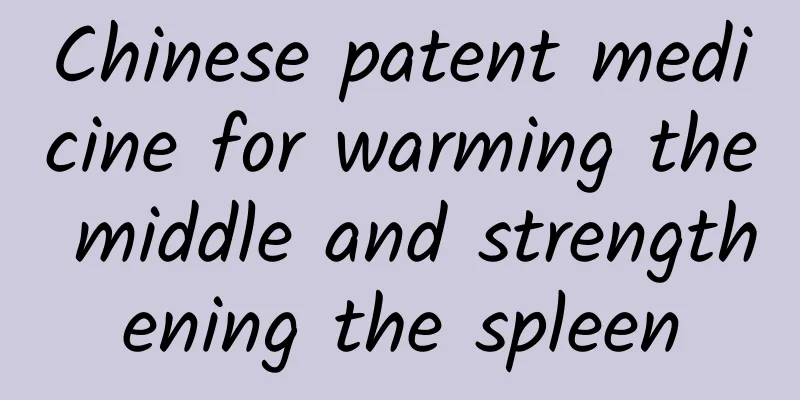Why doesn't the ovarian follicle rupture?

|
For women, once the follicle matures, the luteinizing hormone reaches its peak, the follicle will rupture, and then the egg will be released. However, for some women, the follicle does not rupture, which will lead to the inability to conceive successfully. There are many reasons for the failure of follicle rupture, the most important of which is endocrine disorders, which will lead to the failure of follicle rupture. In addition, mechanical factors and iatrogenic factors are also common reasons. Why doesn't the ovarian follicle rupture? 1. Endocrine disorders: is one of the common causes. From follicle recruitment, development, maturation to final ovulation, local and central hormones coordinate with each other, causing the follicle wall to digest a weak point, increasing the pressure inside the follicle and triggering the release of the egg. Endocrine hormone disorders caused by various reasons, such as polycystic ovary syndrome (PCOS), low gonadotropin, hyperprolactinemia and hyperandrogenemia, are prone to LUFS. In addition, prostaglandins in the follicle cause the follicle wall to thin and dissolve when the follicle ruptures, facilitating the discharge of the egg from the follicle. The use of non-steroidal anti-inflammatory drugs (such as indomethacin suppositories) to inhibit the production of prostaglandins in the body may also lead to LUFS. 2. Mechanical factors: Due to diseases such as chronic pelvic inflammation and endometriosis, the pelvic structure changes, causing the ovaries to be wrapped in chronic inflammatory adhesions, the surface of the follicles to thicken, and the discharge of eggs to be hindered. 3. Iatrogenic factors: For patients with ovulatory disorders, ovulation-inducing drugs such as clomiphene are used to help follicles grow and mature. These ovulation-inducing cycles are more likely to cause LUFS than natural cycles. 4. Mental and psychological factors: Infertile women often show symptoms of mental tension, anxiety, and sensitive reactions to the outside world. These psychological fluctuations affect the normal secretion and coordination of hormones in the body, and some patients develop LUFS. What should I do if the follicle does not rupture? LUFS is a special type of ovulatory disorder, not an independent disease, and is usually treated causally. 1. Expectant treatment: LUFS occurs accidentally in some patients. For patients with no history of infertility or who discover LUFS for the first time, the lutein cyst sometimes disappears naturally before the next menstruation and does not need to be treated for the time being. 2. Treatment of primary disease: For patients with concurrent diseases such as hyperprolactinemia, PCOS, endometriosis, chronic pelvic inflammatory disease, etc., after a clear diagnosis, medication or surgery will be given to treat the primary disease. 3. Drug-induced follicle rupture: Individualized ovulation induction plan is formulated and optimized. After the follicles mature, high-dose HCG or short-acting GnRH-a is injected alone or in combination. 4. Mechanical treatment: 48 hours after the drug-induced follicle rupture, if the follicle still exists, you can gently and moderately squeeze the follicle by hand under ultrasound guidance. If the follicle still does not rupture, follicle puncture surgery can be performed through the posterior fornix of the vagina under ultrasound guidance to help the egg rupture and be discharged, while also guiding sexual intercourse to try for pregnancy. However, the moderate compression method has limited effect, the puncture method is not cost-effective, and there may be risks such as potential damage and infection, so it is not widely used in clinical practice. 5. Laparoscopic surgery: Laparoscopic surgery is used to improve the pelvic environment and restore normal structure. Moderate ovarian drilling for patients with PCOS can reduce the secretion of androgen, increase feedback to the hypothalamus and pituitary gland, and induce follicle rupture; if combined with severe endometriosis or pelvic adhesions, it can loosen the adhesions. 6. In vitro fertilization: Patients who still fail to conceive or have recurrent LUFS after using the above methods are recommended to consider in vitro fertilization treatment. The eggs are removed through egg retrieval surgery and fertilized with sperm in vitro to solve the fertility problem. 7. Psychotherapy: Relaxing and, if necessary, seeking psychological counseling can help restore normal ovulation. |
<<: What is the most effective way to treat a baby's cold?
>>: What is the sign of bitter mouth?
Recommend
What to do if pituitary gland atrophy?
Pituitary atrophy is a phenomenon that many elder...
Is it okay to lie prone when you have a herniated lumbar disc?
In terms of incidence, the incidence of lumbar di...
The harm of high myocardial enzymes in babies
The harm of high myocardial enzymes in babies is ...
How to regulate spleen and stomach deficiency and insufficient qi and blood
Women with insufficient qi and blood will have sy...
Is leek an antidote?
Amaranth generally does not affect the efficacy o...
How long can you live with dilated cardiomyopathy?
The heart is a very important part of our human b...
What medicinal materials are good for making wine?
Many people have a jar of medicinal wine in their...
What are the dangers of high bone mineral content?
Nowadays, many people have high bone salt levels,...
What to do if transaminase is high? Find the cause and then treat it
The most common pathological cause of elevated tr...
Is foot odor a disease?
Maybe many of you don’t have a good understanding...
What causes epididymal pain?
There are many causes of epididymal pain, which i...
The efficacy of pig trotter lotus root soup
The trotter is the part of the pig's body tha...
How to treat varicose veins on the legs
Varicose veins on the legs are common in life and...
Can pregnant women drink snow fungus and lotus seed syrup?
It is beneficial for pregnant women to eat some s...
What are the symptoms of low immunity in women?
Women's physical constitution is much worse t...









